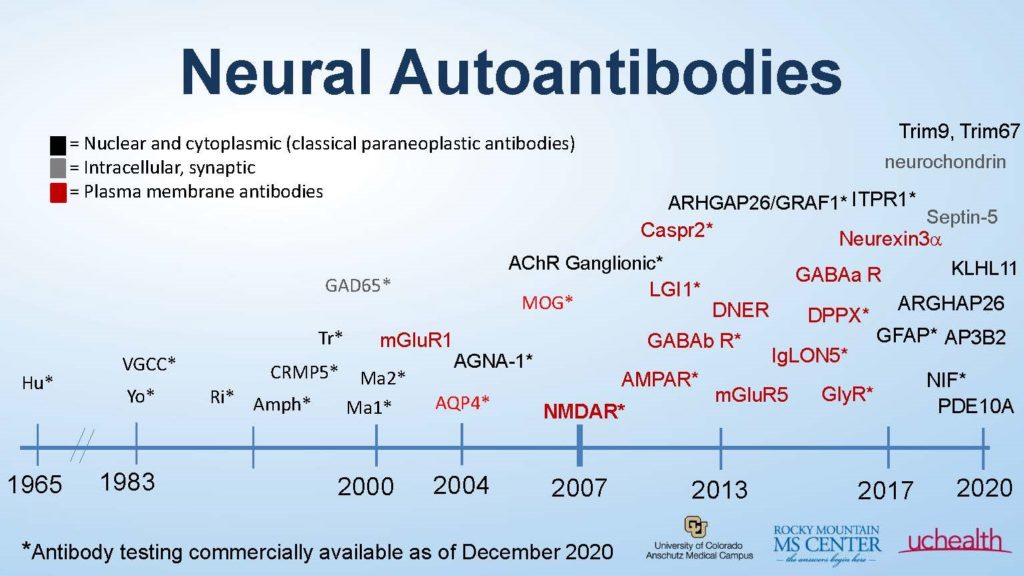AE Today
In many ways, autoimmune encephalitis (AE) remains a frontier disease. Though AE has been referred to in medical literature for several decades, it was only in 2007 that Dr. Josep Dalmau identified the first specific antibody linked to AE when he discovered anti-NMDA receptor encephalitis. Today there are more than twenty-five known antibodies, including autoantibodies to NMDAR, LGI1, CASPR2, AMPA, and GABA. AE related antibodies are being identified at a breathtaking pace.

Sadly, despite the increase in antibody identification and the rising incidence of patients diagnosed with AE, very few people have heard of this disease, much less know someone who suffers from it. There is still much work to be done in building awareness of AE within the general public, but perhaps even more important is the need to expand knowledge and build greater expertise within the medical community. Though not surprising given its rarity, few physicians have encountered a patient with AE in their practice. Access to specialists who can treat this disease remains a hurdle for the patient community.
While autoimmune encephalitis is becoming an increasingly recognized disease, it remains a challenging diagnosis. A multi-disciplinary approach is critical in correctly diagnosing and treating AE, with collaboration from practitioners in psychiatry, neurology, rheumatology and neuroimmunology. With appropriate clinician awareness, rapid diagnostic testing, and essential treatments, patients can lead healthy and productive lives. However, the key is disease awareness, state of the art diagnostic tools, and targeted drug therapies to ensure a positive outcome for the AE patient.
Our knowledge about the pathogenesis and treatment of autoimmune encephalitis has been largely improved in a decade. Many researchers are actively involved in this area to discover hidden antibodies, cellular pathogenesis, definite diagnostic markers, and more effective treatments. Upcoming studies in years should dramatically improve the diagnosis, treatment, and prognosis of the disease for the many patients and families suffering from it.
– Dr. Soon-Tae Lee